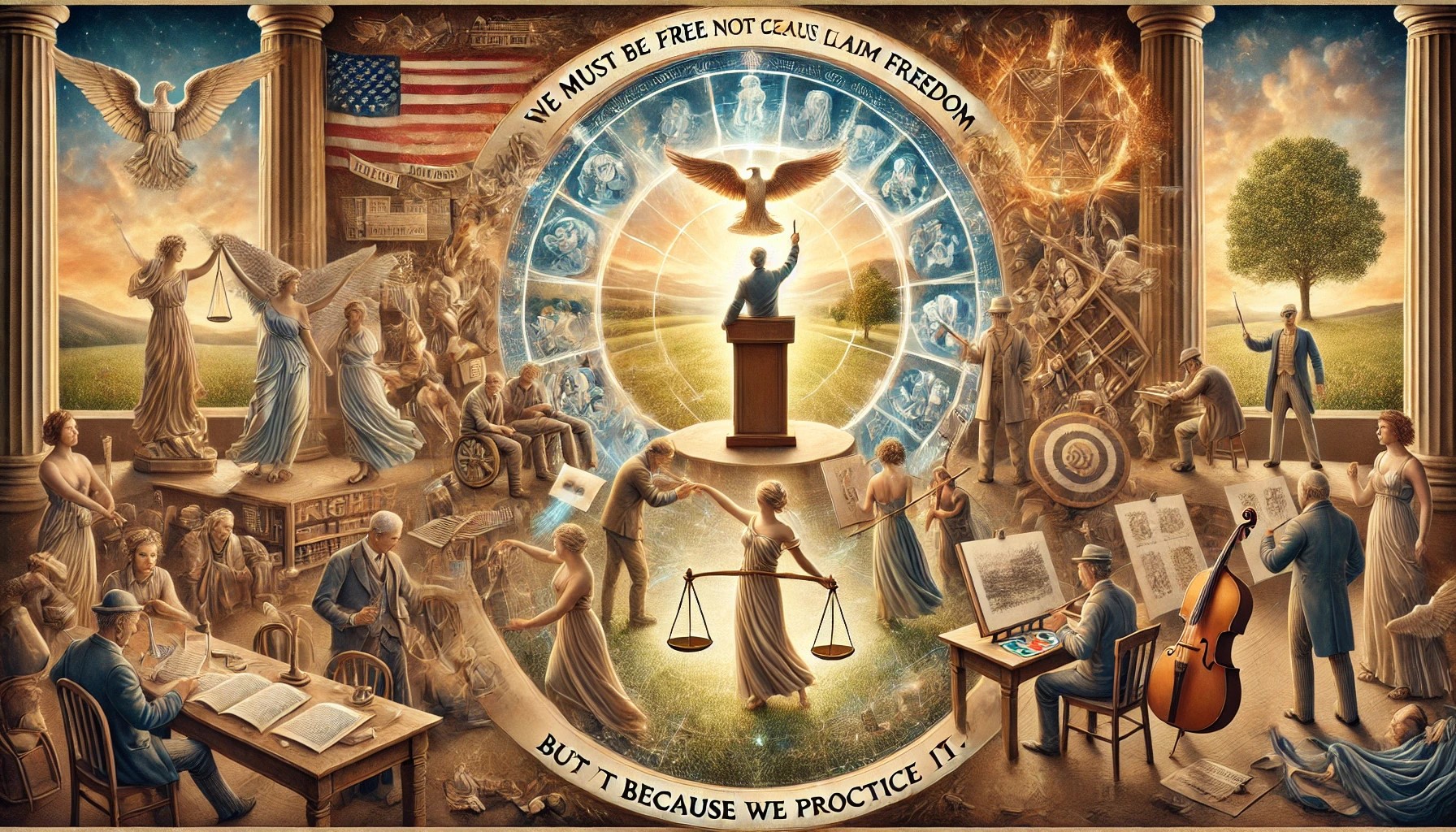
🌈 “We must be free not because we claim freedom, but because we practice it.”
Source: Library of Congress, Prints and Photographs Division, Van Vechten Collection, reproduction number LC-DIG-ppmsca-10445.
Author: Carl Van Vechten (1880–1964)
William Faulkner reminds us that true freedom is demonstrated through our actions. Practice freedom in your daily life. Appreciate and exercise your rights responsibly. Live in a way that honors the freedoms you have, ensuring that they are preserved and respected. 🌟✨
Today, take conscious steps to embody the principles of freedom. Speak your mind, pursue your passions, and stand up for what you believe in. Remember that freedom is not just a privilege but a responsibility that requires active participation. 🌍🗣️
By practicing freedom, you contribute to a society where everyone can thrive. Encourage others to do the same, creating a ripple effect that strengthens and upholds the liberties we cherish. Celebrate your freedom by using it wisely and thoughtfully, making a positive impact in your community and beyond. 🏆🤝
William Faulkner, born William Cuthbert Falkner on September 25, 1897, in New Albany, Mississippi, was an acclaimed American writer and Nobel Prize laureate known for his innovative literary techniques and deep exploration of the human condition. He is considered one of the most important writers in American literature, particularly for his contributions to the Southern Gothic tradition.
Faulkner was raised in nearby Oxford, Mississippi, a place that would heavily influence his work. His family had a history of wealth and social prominence, but by Faulkner’s time, they had lost much of their former status. Faulkner’s great-grandfather, William Clark Falkner, was a notable figure in Mississippi, serving as a Confederate colonel and a successful author and businessman. This familial legacy deeply influenced Faulkner’s sense of history and place, elements that pervade his fiction.
Faulkner’s early education was sporadic and he never completed high school. He briefly attended the University of Mississippi as a special student but left without earning a degree. During World War I, he enlisted in the British Royal Flying Corps, though he never saw combat. After the war, he returned to Oxford and began his writing career in earnest.
Faulkner’s first novel, “Soldiers’ Pay” (1926), was well-received, but it was his creation of the fictional Yoknapatawpha County – a setting for many of his subsequent works – that solidified his literary reputation. His novel “The Sound and the Fury” (1929) is a prime example of his experimental narrative techniques, employing stream of consciousness to explore the fragmented lives of the Compson family.
Faulkner’s other significant works include “As I Lay Dying” (1930), “Light in August” (1932), and “Absalom, Absalom!” (1936). These novels, along with many of his short stories, delve into themes of decay, identity, and the complexities of the Southern experience. His writing is marked by intricate prose, multiple perspectives, and a deep psychological insight.
In 1949, Faulkner was awarded the Nobel Prize in Literature for his powerful and artistically unique contribution to the modern American novel. In his acceptance speech, he spoke of the human spirit’s endurance, resilience, and capacity for compassion, which he believed to be the central themes of his work.
Faulkner also worked in Hollywood as a screenwriter, contributing to films such as “To Have and Have Not” (1944) and “The Big Sleep” (1946). Despite his success, he remained deeply connected to his Southern roots, living most of his life in Oxford, Mississippi.
William Faulkner passed away on July 6, 1962, but his legacy endures through his profound and challenging body of work, which continues to be studied and celebrated for its innovative narrative structures and deep exploration of the human experience.